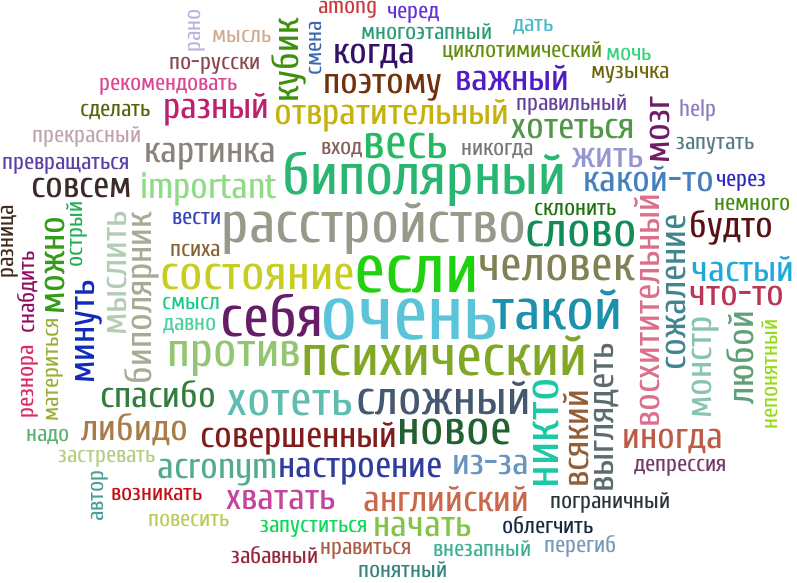Нашлась интересная классификация психозов:
Psychosis refers to a loss of contact with reality. When people can’t tell the difference between what is real and what is not, it is called a psychotic episode. A first episode of psychosis is often very frightening, confusing and distressing, particularly because it is an unfamiliar experience.
Psychosis usually first appears in a person’s late teens or early 20s. Approximately three out of every 100 people will have a psychotic episode in their lifetime. Psychosis occurs in men and women and across all cultures and socioeconomic groups.
Psychotic illnesses seem to affect women at a later age than men, when women may be farther along in their social and work lives. On the whole, women respond better than men to most treatments. However, women have times when the risk of relapse is greater. These times are before their period is due, after childbirth and around menopause. This suggests that women’s hormones may in some way affect psychosis.
A number of mental illnesses can include psychosis as a symptom, including:
Schizophrenia: A person has some psychotic symptoms for at least six months, with a significant decline in the person’s ability to function.
Schizophreniform disorder: A person has some psychotic symptoms for less than six months.
Bipolar disorder: With this type of illness, the symptoms of psychosis relate more to mood disturbance than to thought disturbance.
Schizoaffective disorder: A person will have symptoms of schizophrenia and symptoms of a mood disturbance, either at the same time or alternating over time.
Depression with psychotic features: A person has severe depression and symptoms of psychosis without the mania associated with bipolar disorder.
Drug-induced psychosis: The use of drugs such as marijuana, cocaine, LSD amphetamines and alcohol can sometimes cause psychotic symptoms to appear.
Organic psychosis: Symptoms of psychosis may appear as a result of a physical illness or a head injury.
Brief psychotic disorder: This illness usually lasts less than a month. It is usually triggered by a major stress in the person’s life, such as a death in the family.
Delusional disorder: This type of psychosis consists of very strong and fixed beliefs in things that are not true.
Post-traumatic stress disorder: This usually lasts more than a month, and happens after a person has seen or experienced a very traumatic event. The person may have flashbacks or hallucinate.
In most cases, we do not know what causes a first episode of psychosis. Current research shows that biological and genetic factors raise the risk of having psychosis. Brain chemistry may affect psychosis.
Источник - http://www.camh.ca/en/hospital/health_information/a_z_mental_health_and_addiction_information/psychosis/Pages/psychosis.aspx
